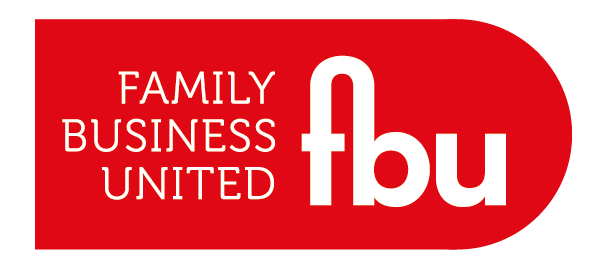.jpeg)
The world has a natural indifference to our feelings
When there is a big gap between your expectation (ok, your fantasy) and reality (not my reality; the reality), it can really hurt.
Fantasy is natural. Let’s face it, it’s the way we operate. We use our deeply ingrained beliefs about the world and who we are to choose what is important in the stream of incoming information. We delete the rest and rapidly build a picture of the world.
We do this so fast that we don’t notice we are in a movie of our own life that sits at a slight (or huge) distance to the world out there. It’s how we manage to negotiate doors, and why we occasionally bump into them instead, sometimes badly, which is when it hurts a lot.
NB this is happening more since we started to incorporate smart phones and social media into our fantasy and stopped looking at the world directly. I watched a smombie walking around a corner, full pelt, into a chap and upend a large, boiling americano down his suit. Thank God neither were in a car!
(Smombie = smart phone zombie. Not all change is good.)
Like a dance, change is all around, whether quick or slow and we don’t really have a choice but to try and stay in step.
This time of year is a big reality check for many people, as the pressures of work, family life and the Christmas break catch up on them. It leaves the divorce courts at their fullest in January.
To improve leadership of ourselves and others, it is a good idea to work on our ability to cope with the inevitable and never-ending tick of change, and our own tendencies through bias, belief and inattention to let our fantasy slip too far from reality.
Here is a good model to work through yourself to understand how you and others around you are likely to react to reality shock and what you can do about it.
Let’s assume your fantasy and mine are fine, and focus on the “others”. The four stages of their effective response to change are:
- Awareness
- Reaction
- Acceptance, and
- Change
Awareness
This is the first moment of shock. They become aware that there is something wrong with their picture of the world. Something they thought was ok, is definitely not ok.
This might occur in a major row at work or at home. It might have been preceded by something going wrong, perhaps a project or some behaviour. Perhaps it is something that has been going on for a while and while they were telling themselves it was OK, quite convincingly, it turns out other people significant in their life (the boss, fellow partners, colleagues, the spouse) didn’t think so. At all!
Don’t forget this isn’t about you and me. It’s about other people!
More seriously, this often happens when health lets us know we are not immortal. We can all too easily take our health for granted. We frequently stretch the platform it gives us, to the limit.
When that chair is knocked from under our feet, we can find we have more commitments than we can cope with, or simply that our whole perspective on life and leadership has shifted with the crash.
If this has happened to you, talking about it can really help you adjust to reality.
Awareness is the first instance that they, on the inside, really notice that the change required might be in themselves, rather than in everybody else. Not that they are about to admit that publicly just yet. They are going to have a ….
Reaction
It will be a stress or a negative reaction. The first reaction people have is likely to be emotion, confusion, perhaps anger, certainly anxiety, probably not yet shame or guilt.
At this stage there is a tussle for blame inside them. They still blame other factors, but coming into consciousness is a counterbalancing sense that they are also, and maybe solely, to blame.
Being torn like this leads to stress, anger, blaming, defensiveness. It will probably lead to stone-walling. There is no progress until this release of friction leads no-where and something has to give. This leads to…
Acceptance
That shift from seeing problems as caused by others to having our own responsibility is a difficult one to make. The sense of self-direction, often called an “internal locus of control” meaning a belief that “I can do something about this”, is an important leadership attribute. It primes for proactivity. But it can be hard to swallow.
“I was partly the cause of this, and I can take responsibility for my own changes”, is a vital first step in self-leadership, which is where all good leadership begins.
The emotion shifts from frustration and anger at others, to guilt, frustration and anger at themselves. Perhaps shame, which is guilt they feel others can see. Guilt is private, shame is public, as they say.
Part of the pain of acceptance is that it means giving up. Giving up on something nearly always hurts. Even if it’s giving up on a fantasy or a dream.
This emotion may feel bad, difficult, and hard work. But it signals a positive shift inside. They are now approaching acceptance, which is where the negative emotions abate a little. Just enough for logic to get a look in.
Giving up on unhelpful beliefs about ourselves releases the potential of the new.
“Right, what am I going to do about this? I’d best get on with it!” Finally acceptance and some less emotional ideas about what to do turn up — a plan emerges.
Now they can start to…
Change
Making the changes is the final stage in the shift from unconscious, or fantasy world, to consciousness and learning about the new reality.
The reality check includes an understanding that change is going to be hard. There will be more emotional difficulty to face as they start to open up and talk more freely about what went wrong and how things need to move on.
New habits and changes require self-discipline. A good essay is rarely achieved without an “essay crisis”. We have to accept that emotional stress is a critical and central part of learning and growing. Easy is useless. Hard teaches.
If you follow the drift of this article, you will note there is no escape from facing our emotional responses to change. Reality checks and reality shocks are some of the hardest moments we face. To retreat from strong feelings is to evade the learnings of life and stay in the fantasy of the free lunch.
I always remember the words of my Mindshop colleague, psychologist Dr Daryl Cross.
“The juice of life lies outside the comfort zone”
The world out there is changing. Change is its very nature. We cannot pretend otherwise for long before life reminds us of its impermanence.
Check in on your own progress through the four stages of change, and don’t duck the hard moments. I know they may fill you with fear, but they are better faced.
Do call if my article raises any issues for you, or you have colleagues that you feel may need a little rescue or support as we pass through mid-winter.
You can always contact us through the website www.alembicstrategy.com or email me: nick.mayhew@alembicstrategy.com
Our next London Leader’s forum is on the 24th January and will include group work on resilience, self-leadership and change. Get in touch if you are a leader and interested to participate.




